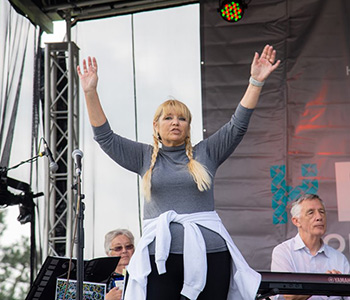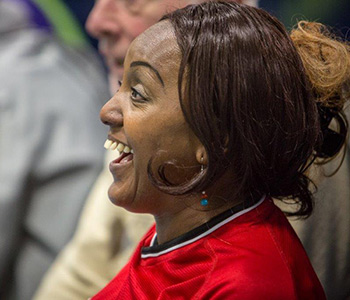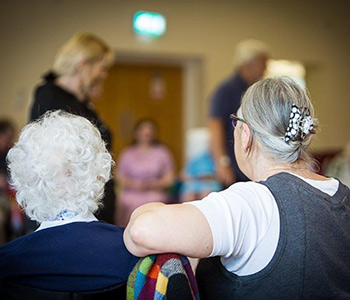First of all, I would like to wish a Happy 2019 to us all.
How was your Christmas? You may have had fun with friends and/or family, eaten and drunk too much, given and received presents, put up a Christmas Tree and decorated it, sent and received Christmas cards etc. attended carol services and Midnight Mass and watched a lot of telly. Or you may have done none of these things. You may have been on your own. Or you may have been just too busy and too stressed and too tired to do anything except just survive it.
At the very least the whole nation had a two-week break from Brexit so that’s something to be thankful for!
I had one day of the holiday when I was fortunate enough to have all my family with me. It’s very rare for us all to be together because we are so many. 23 altogether with children, grandchildren and partners. Inevitably, when my five children get together the subject of my welfare comes up. I was part of the discussions, I must say, and I am very fortunate to have their loving care and support. It was in one of the discussions that my son quoted from “The Leopard” by Tomaso Di Lampedusa “If we want things to stay as they are, we have to change”. In my case if I want to stay in my own home, I have to accept some alterations to my lifestyle. I can live with that.
And then I thought that this quote is a very neat way of describing the lives of couples when one of them develops dementia. If we want to remain independent for as long as possible, we have to accept some loss of independence. If the person with dementia has insight and can accept this situation this can really help. If they are in denial about their condition or simply lack the ability to understand this can be very tricky. But there is no way round this. The dementia journey involves lots and lots of changes – which can feel like losses. But if we can learn to see that change is necessary for survival, we can make use of any help that is offered and find the courage to accept it. Those of you who are near the end of the journey or who have crossed the finishing line will know that this is true.
This goal of maintaining independence cannot be sustained indefinitely. It is generally accepted that there are three stages of dementia – Early, Middle and Late. We have been interested for some time in the work of Professor Jane Tolman of the University of Tasmania. She suggests that we should focus on the forms of support needed at each stage. They will change as the dementia changes. I found a helpful article by her which explains her ideas in more detail. (https://dementiacarenotes.in/caregivers)
In Early Stage the goal is to ensure dignity and autonomy. Keep the person as happy and independent as possible – just as it would be if they were growing old or had a physical disability. Tolman says that at this stage the carer/supporter only needs to provide a low level of support. Some ideas she suggests are.
- Look at home adaptations – things like specially adapted clocks and calendars – labels for containers and drawers using words and pictures – place signs on doors – put up charts to help the person with the steps of an activity (like making tea)
- Look at ways that the person with dementia can continue to do their own tasks with some extra help.
- Carer/supporters can prepare and make plans for later care. She suggests that they should take the opportunity to learn as much as they can about dementia and discuss it with the person with dementia if that is possible.
- Carer/supporters need to be alert to risks. Examples she gives are driving, smoking, medication, the possibility of getting lost, cooking.
In Mid Stage the goal is to keep the person as safe as possible
Tolman says that this stage is often most stressful for carer/supporters.
- Changed and risky behaviours are more common in this stage. Some people are still aware of the changes and can share with others about how they feel. Others are quite unaware.
- Carer/supporters have to set up ways to manage daily care so that the person stays safe.
- Find suitable ways to talk to the person, help them and handle the changed behaviour.
- Plan and maintain a suitable daily routine.
- Review the care plan as you go. Change is inevitable. This includes looking at how the person is managing their own personal care and keeping a close eye on the medical situation.
- If the medical side is changing you might need a major re-assessment by the doctor
In Late Stage the goal is to ensure comfort, dignity and quality of life.
Some people can be cared for at home, although nursing skills will be needed. Most people however will be in a care home at this stage because they need 24/7 care.
I used to say that dementia is not a sprint, it’s a marathon. But a carer corrected me and said it’s not a marathon. It’s a decathlon. You need to learn so many different skills and it also involves a long series of changes. The Tibbs Dementia community is here to support you through these changes in many different ways.
I hope that in 2019 our community will continue to grow from strength to strength, learning from each other as we navigate the inevitable changes which dementia brings. As I’ve said before, remember that saying – “It takes a village to raise a child”?
Well, I think it takes a community to support a person with dementia.




